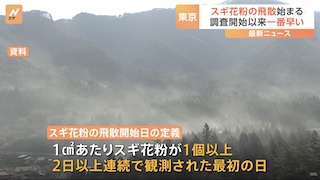TOKYO, Sep 16 (East Asia Forum) - Japan's dairy farmers are facing a tough financial situation. According to the Ministry of Agriculture, Forestry and Fisheries (MAFF), the number of dairy farmers in the country declined by 5.3 per cent - faster than the average rate of 4 per cent - over the past 10 years.
Two major factors caused these difficulties: soaring production costs and cutbacks in milk production promoted by the Japanese government.
Soaring production costs — especially for feed — are mainly triggered by the Russia-Ukraine war. The war drastically decreased crop production in Ukraine, one of the biggest crop exporters in the world, which lifted international feed prices. A weak yen that led to increasing feed prices and electricity bills in Japan poured salt on the wound. In June 2023, the average feed price had increased by 48.4 per cent compared to 2020.
Dairy farmers in Japan usually combine fibre-abundant roughage with concentrated feed that is rich in carbohydrates and proteins. Feed cost generally accounts for half of domestic dairy production costs. The feed price increase heavily impacted the Japanese dairy industry.
Japan’s self-sufficiency rate of concentrated feed that promotes growth and productivity of livestock is low, at just 13 per cent in 2021. Even if international feed prices increase, many farmers in Japan cannot shift to domestically produced feed due to a lack of supply.
The Japanese government is making efforts to stabilise domestic feed prices. MAFF released reserve funds accumulated by producers, feed manufacturers and the government to cover a part of the increase in concentrated feed prices. There is also a subsidy to cover the price increase in roughage, and some farmers even argue that the government should fully compensate for the increase.
But others point out that international maize prices — a main ingredient for concentrated feed — have remained low, and farmers had access to cheap feed until 2022. They argue that dairy farmers are responsible for their decisions to depend on cheap imported feed
Another complaint that farmers have against the government is a recent change in the policy for milk production. Since 2014, MAFF supported farmers to scale up businesses by offering subsidies offering up to 50 per cent of capital investment in machinery, such as milking machines. But the Japanese government changed its policy to reduce the number of dairy cattle in November 2022. MAFF explains that this is because of the decrease in domestic demand for milk and dairy products from the restaurant industry, mainly due to COVID-19.
In March 2023, MAFF even launched a subsidy that offers 150,000 yen (US$1060) per cow for farmers to slaughter milking cows with low milk production capacity. The aim is to decrease domestic milk production to mitigate supply surplus.
A common point of the twin challenges of soaring production costs and milk production cutbacks is that they are strongly tied to global insecurity, such as the pandemic and political unrest. Global insecurity will probably continue, if not accelerate. To mitigate the negative impact of global insecurity, Japan’s dairy industry should start weaning itself off imported feed.
MAFF’s Basic Plan for Food, Agriculture and Rural Areas, revised in 2020, claims that Japan must promote domestic production of feed crops. A decrease in domestic rice consumption encouraged MAFF to subsidise farmers converting paddy fields to produce feed crops. Japan’s planting acreage for fodder crops was about 1 million hectares in 2022 and is slowly increasing.
Another way to reduce dependency on imported concentrated feed is to replace them with roughage and other diets like eco-feed. Japan’s self-sufficiency rate for roughage is higher than for concentrated feed.
Recycled eco-feed made of leftovers and abandoned agricultural products has the potential to not only promote food self-sufficiency and environmental sustainability but also reduce production costs. Making use of domestic resources will strengthen Japan’s resilience against global insecurity. Promoting a balanced diet for livestock is also encouraged from the perspective of animal welfare.
These countermeasures are posing a more fundamental question to the industry of whether Japan should continue productivity-first dairy farming. Despite some progress, being fully self-sufficient in concentrated feed is a lofty goal. But cattle that consume more roughage will produce less milk than cattle fed with concentrated feed.
Conventional practices in the industry promoting productivity, such as a concentrated feed-centred diet, are incompatible with resilience and sustainability-oriented practices. The downside of the latter, such as an increase in retail prices of dairy products, highlights an importance to acknowledge the wider social context of raising awareness of eco-friendly products among Japanese consumers.
Given the precarious global situation, gradually transforming the conventional practices will be critical for the industry. Replacing a certain proportion of concentrated feed exemplifies the first step. These challenges are leading dairy farmers to question how the industry should reimagine itself.
Yusaku Yoshikawa is an aid consultant at JIN Corporation.















